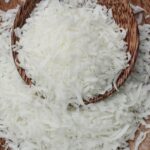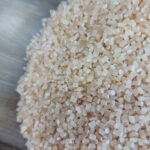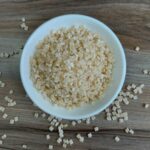CASHEW NUT SHELL OIL
In the competitive world of ketchup manufacturing, consistency, texture, and shelf stability are critical factors that define product quality and consumer satisfaction. Among the many ingredients used, modified tapioca starch has emerged as an indispensable component in modern ketchup formulations. This versatile starch offers unique functional benefits that make it a must-have ingredient for any ketchup manufacturer aiming to produce high-quality products.
Table of Contents
Toggle1. Enhancing Ketchup’s Texture and Consistency
One of the primary roles of modified tapioca starch in ketchup production is its ability to create the ideal texture. Consumers expect ketchup to be smooth, thick, and easy to pour. Modified tapioca starch provides exceptional thickening properties, ensuring that the ketchup maintains its desired viscosity during production, storage, and usage. Unlike other starches, it imparts a creamy texture without any graininess, which is essential for a premium-quality product.
2. Superior Stability Under Heat and Shear
Ketchup production involves high-temperature cooking and mixing processes, which can break down traditional starches. Modified tapioca starch, however, is engineered to withstand these rigorous conditions, maintaining its structure and functionality. This stability ensures that the ketchup remains uniform in texture and appearance, even after prolonged processing or storage.
3. Improved Shelf Life and Storage Performance
Modified tapioca starch also contributes significantly to the shelf life of ketchup. It helps prevent syneresis, the undesirable separation of water from the ketchup over time. By keeping the product stable, it ensures that consumers receive ketchup that looks and tastes fresh, even months after production. This property is particularly valuable in today’s global supply chains, where products must endure extended shipping and storage periods.
4. Clean Label Appeal
Modern consumers are increasingly seeking “clean label” products with simple, recognizable ingredients. Modified tapioca starch fits perfectly into this trend. It is derived from a natural source—cassava—and offers manufacturers the ability to maintain product quality without the need for artificial stabilizers or emulsifiers.
5. Cost Efficiency
In addition to its functional benefits, modified tapioca starch is a cost-effective solution for manufacturers. Its efficiency in thickening and stabilizing means that less of it is required compared to other starches, reducing production costs while delivering superior performance.


Conclusion
As the ketchup industry continues to evolve, the demand for high-quality, stable, and consumer-friendly products will only grow. Modified tapioca starch addresses these needs with its unmatched versatility and performance, making it an essential ingredient in ketchup production. For manufacturers looking to stay ahead in the market, incorporating modified tapioca starch into their recipes is not just a choice—it’s a necessity.












